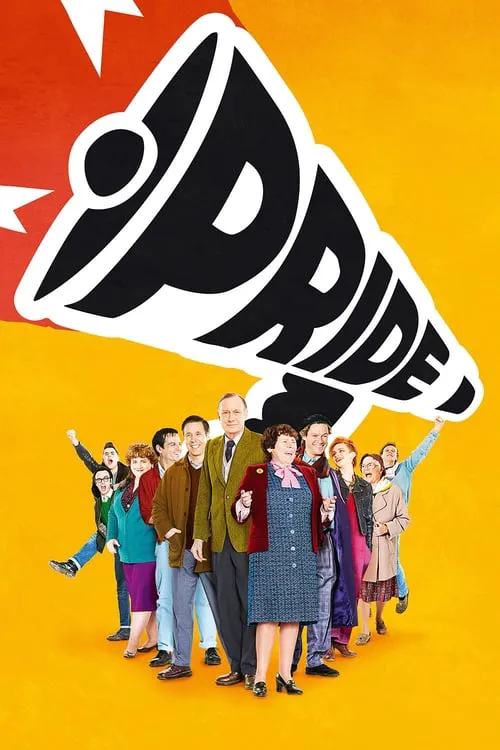Pride

Plot
In the heartwarming British drama Pride, a group of LGBT activists in London come together to support the striking National Union of Mineworkers in Wales in 1984. The miners, embroiled in a prolonged industrial action against the Conservative government, were fighting for better working conditions, fair wages, and benefits. However, the miners' union, led by Arthur Scargill, initially rebuffs the offer of support from the LGBT group. The scene cuts to Mark Ashton, a young and charismatic activist who had the idea to raise funds for the striking miners. He is approached by several other members of the LGBT community, including Garry, Steph, and Mike, and together they form the Lesbians and Gays Support the Miners (LGSM) group. The group devises a plan to raise money for the miners, and they come up with the brilliant idea of organizing a benefit concert in London. They secure a venue and manage to gather a lineup of notable comedians, musicians, and performers. After a successful fundraising event, the group dispatches a team to Wales to deliver the funds directly to the miners. Upon their arrival in Wales, the LGBT group, consisting of Julian, Mark, Garry, Steph, and Mike, is met with suspicion and even hostility from some of the locals. Many of the miners and their families are initially hesitant to accept support from a group of gay activists, fearing ridicule and social ostracism. Despite these initial reservations, the LGBT group perseveres, and they are eventually welcomed into the community by a group of young, radical miners who share their values of solidarity and equality. The miners are introduced to the activists' stories of personal struggle and perseverance in the face of anti-gay prejudice, and they begin to see their new allies in a different light. One of the most poignant moments in the film is the moment when a young gay activist, Garry, is welcomed into the home of a miner's family, where he is offered a warm and genuine welcome. Garry, who had expected to be rejected or ridiculed, is touched by the miners' kindness and understanding. This gesture sets the tone for a deeper understanding and acceptance between the two groups. As the week progresses, the LGBT group and the miners begin to form bonds and friendships that transcend their differences. They share meals, drinks, and stories, and they realize that, despite their vastly different backgrounds and experiences, they are united by a common purpose: solidarity. The climax of the film comes when the LGBT group decides to stay in Wales and help the miners in their fight against the government. They participate in picket lines, distribute leaflets, and raise awareness about the plight of the miners. In return, the miners offer their support and solidarity to the LGBT community, promising to help them in their fight against anti-gay prejudice. Pride is a heartwarming story of unlikely alliances and the power of solidarity. It reminds us that even in the darkest of times, there is always hope and always a chance for change. The film is a testament to the strength and resilience of both the LGBT community and the working class, and it shows that together, we are unstoppable. The film also explores themes of identity, community, and acceptance. It highlights the struggles faced by the LGBT community in the 1980s, including internalized homophobia, biphobia, and transphobia. However, it also shows the ways in which acceptance and solidarity can overcome even the most entrenched prejudices. Ultimately, Pride is a film that will leave you feeling inspired, uplifted, and empowered. It is a celebration of the human spirit and a reminder that, together, we can create a more just and equitable world for all.
Reviews
Recommendations




